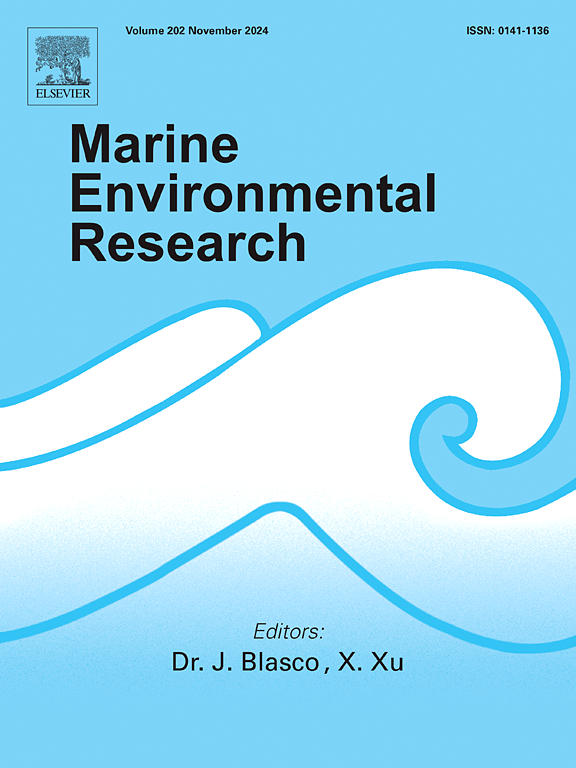Synergistic effects of the antibiotic ciprofloxacin and a simulated heatwave on the Baltic Sea dinoflagellate Apocalathium malmogiense
IF 3
3区 环境科学与生态学
Q2 ENVIRONMENTAL SCIENCES
引用次数: 0
Abstract
Climate change-driven heatwaves in the Baltic Sea are becoming more frequent and intense, potentially exacerbating phytoplankton blooms that impact biodiversity and ecosystem functioning. Alongside this, chemical pollutants, such as antibiotics, may compound these effects. This study examined the combined impacts of a simulated heatwave (+5 °C) and the antibiotic ciprofloxacin (0.1 μg L−1) on the dinoflagellate Apocalathium malmogiense. We assessed cell counts, size, growth rates, Chlorophyll-a (Chl-a) content, and nutrient uptake. The simulated heatwave increased growth and Chl-a content but reduced cell size, while ciprofloxacin alone had no effect on growth response parameters. However, the combination of both stressors significantly reduced cell counts (−17 %), Chl-a content (−34 %), and growth rates (−20 %). Ciprofloxacin also decreased nitrogen uptake by over 40 %, exacerbating the nitrogen deficit caused by the heatwave. This study highlights the importance of testing global change stressors in combination, as synergistic effects may otherwise go undetected if only studied in isolation.
求助全文
约1分钟内获得全文
求助全文
来源期刊

Marine environmental research
环境科学-毒理学
CiteScore
5.90
自引率
3.00%
发文量
217
审稿时长
46 days
期刊介绍:
Marine Environmental Research publishes original research papers on chemical, physical, and biological interactions in the oceans and coastal waters. The journal serves as a forum for new information on biology, chemistry, and toxicology and syntheses that advance understanding of marine environmental processes.
Submission of multidisciplinary studies is encouraged. Studies that utilize experimental approaches to clarify the roles of anthropogenic and natural causes of changes in marine ecosystems are especially welcome, as are those studies that represent new developments of a theoretical or conceptual aspect of marine science. All papers published in this journal are reviewed by qualified peers prior to acceptance and publication. Examples of topics considered to be appropriate for the journal include, but are not limited to, the following:
– The extent, persistence, and consequences of change and the recovery from such change in natural marine systems
– The biochemical, physiological, and ecological consequences of contaminants to marine organisms and ecosystems
– The biogeochemistry of naturally occurring and anthropogenic substances
– Models that describe and predict the above processes
– Monitoring studies, to the extent that their results provide new information on functional processes
– Methodological papers describing improved quantitative techniques for the marine sciences.
 求助内容:
求助内容: 应助结果提醒方式:
应助结果提醒方式:


